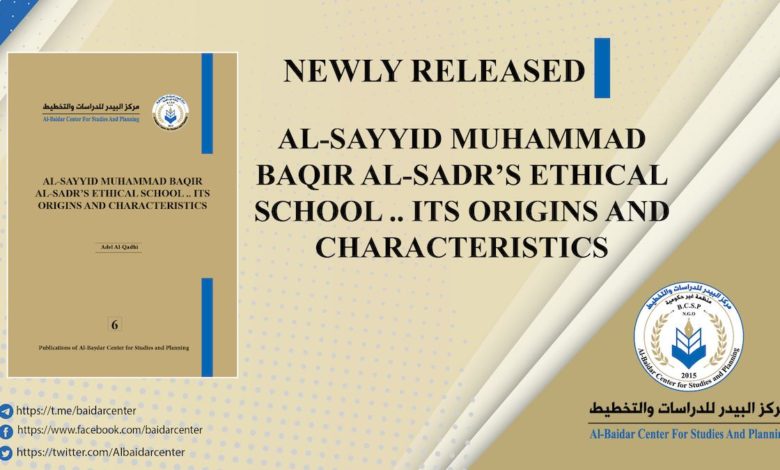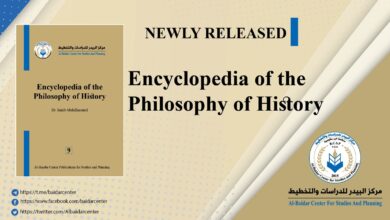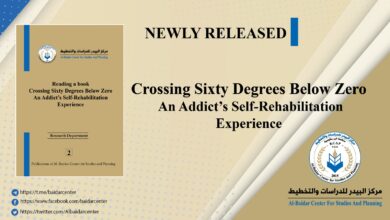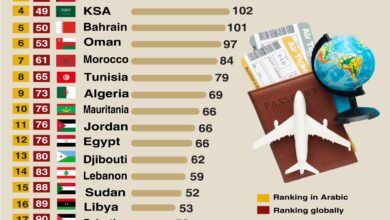Al-Sayyid Muhammad Baqir Al-sadr’s Ethical School.. its origins and characteristics

Al-Baydar center for studies and planning recently published a book (al-sayyid muhammad baqir al-sadr’s ethical school.. its origins and characteristics) by its author, al-qadi
The martyr, Sayyid Muhammad Baqir al-Sadr, stood on a lofty summit of knowledge, and it was his immortal resting place. Decades have passed since his martyrdom, and he is still unique in his position.
The world has evolved a lot with scientific research, new approaches, and shocking opinions. Theories retreated, ideas fell, and concepts were shaken. Nevertheless, the intellectual output of the martyr, Sayyid Muhammad Baqir al-Sadr, in the areas he dealt with, remained brilliant, and even after his martyrdom, he still proves the accuracy of his findings by referring to the Islamic faith, its thought, and its broad system of knowledge.
The martyr, Sayyid Muhammad Baqir al-Sadr held in his hands the two elements of the path towards human integration, which are thought and morals. He did not care about one and leave the other, but rather held them to his chest with all strength. He believed, as the Holy Qur’an wanted, that thought is close to the action, and that knowledge is associated with morals. He was able to do so with remarkable sincerity and firm adherence to his principles.
It has happened in the contexts of social and cultural life that it sets its eyes on the scientific output of men of thought, while it does not look at the moral dimension in their personalities except with fleeting glances. Perhaps the reason for this is the human tendency inclined to the glamor of science and its preference over ethics. And if the eyes aspired to the moral side of the martyr Muhammad Baqir al-Sadr, they would look back over and over again at his behavior and moral values, and each time they would be fascinated by the highness of his morals and the extent of his struggle for himself and his constant struggle to embody what he believes in.
He talked about asceticism, and his example was in the reality he lived. He wrote about the Islamic system, so he built his political school on this basis, setting himself up to face the most difficult circumstances in a country whose authority is based on killing on suspicion and taking opponents to abuse just because of suspicion.
The martyr, Sayyid Muhammad Baqir al-Sadr, spoke about the world of Harun al-Rashid and warned against it. It was offered to him by the Ba’ath regime in repeated attempts, but he strongly rejected it and turned himself away from it. What he found in being honest with his principles was more desirable to him than the world of Harun al-Rashid.
The scientific side, despite the great creativity achieved by Sayyid Muhammad Baqir al-Sadr, was nothing but the visible side of his personality, and perhaps it is the less extensive side if we compare it to the moral side that needs glorification, patience, and steadfastness. He fought the lesser jihad in his intellectual and political battles and won them. Before, during, and after that, he fought the greater jihad and emerged victorious with his head held high.
In this book by Mr. Adel Al-Qadhi, Al-Baidar Center for Studies and Planning finds a wonderful effort in defining the moral school of the martyr, Sayyid Muhammad Baqir Al-Sadr, and it is an effort that deserves thanks and praise because it shed light on this aspect of the life of the great martyr, filling the gap in defining his heritage, school, and personality.
Mr. Al-Qadhi›s effort meets the orientations of the Al-Baidar Center in spreading the culture of building and intellectual and moral advancement in society. He has our sincere thanks and appreciation, and we are reprinting it to serve the community in the field of ethics and culture.





